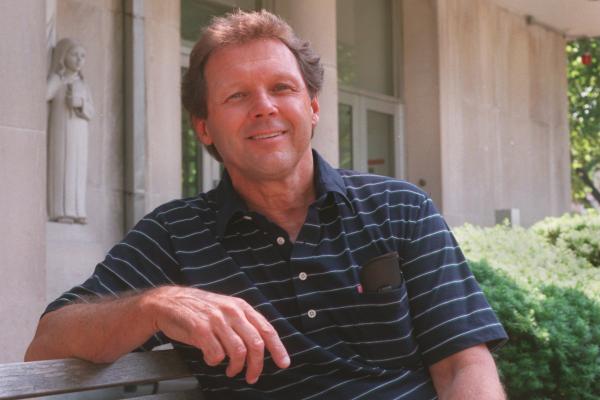As President Barack Obama prepares for a second term, immigration reform is rumored to be at the top of his agenda. With conservative opinion on the issue shifting, a unique opportunity exists to fix our nation’s broken immigration system. Americans are eager to see the president and Congress make progress on this unnecessarily vexing issue.
The record Latino voter turnout in support of President Obama played a key role in his electoral victory, as he won 71 percent of the vote compared with 27 percent for Gov. Mitt Romney.
These results have provided a catalyst for reenergizing the conversation around comprehensive immigration reform and paved the way for unexpected conversations among conservatives.
A lot of ink, pixels, and air have been used on the potential effects of the so-called “fiscal cliff.” While many experts say that “cliff” is a misnomer (it’s more of long slope in the wrong direction), there is at least broad agreement that it’s not the right direction for the country’s long-term health.
We’ve heard a lot about the potential effects on Wall Street, our nation’s credit rating, and even the military. But little has been said about the devastating consequences for our nation and the world’s poorest and most vulnerable people — or for the charities and non-profits that serve them.
This week, the Circle of Protection, released an open letter to the president and Congress with a simple message: during the holidays, please “advance policies that protect the poor — not ones that make them poorer.”
NEW YORK — It's a short walk from Ground Zero to the Staten Island Ferry terminal.
If you're a dedicated tourist, you can see where a terrorist attack occurred on 9/11 and then hop a ferry to see where Hurricane Sandy devastated Staten Island's oceanfront last month.
Sad to say, but that's exactly what many tourists are doing. Instead of going to Staten Island to help traumatized residents, they go to gawk. Then they go back to Manhattan for lunch and holiday shopping.
This is what happens when people lose a basic sense of obligation to one another. It no longer seems sane or necessary to be charitable. Instead, people feel justified in looking away from need. They feel disconnected from neighbors who are suffering. When the storms of life hit, they call themselves “makers” and dismiss the “takers” as lazy.
WASHINGTON — It’s an idea that feels particularly poignant this Thanksgiving: American Jews and Muslims banding together to help the homeless and other needy people.
The interfaith collaboration has been going on for five years, but the recent exchange of rockets between Gaza and Israel is weighing especially hard on both communities this week. That's why a joint session of sandwich making or a group visit to a nursing home has taken on added significance.
“In this time of warfare it was a beautiful experience to see the two come together,” said Haider Dost, a Muslim student at Virginia’s George Mason University who worked with Jewish students to feed the homeless Sunday in Franklin Park, just blocks from the White House.
A long-running struggle between Catholic authorities and the Rev. Roy Bourgeois over his support for ordaining women has ended with Bourgeois’ dismissal from the priesthood and his religious order, the Maryknoll Fathers and Brothers.
A statement from Maryknoll on Monday confirmed that the Vatican’s office for orthodoxy, the Congregation for the Doctrine of the Faith, laicized Bourgeois last month.
The move stems from Bourgeois’ participation in an August 2008 ordination rite in Lexington, Ky., for Janice Sevre-Duszynska. The ceremony was not recognized by the Vatican and took place under the auspices of a group called Roman Catholic Womanpriests, which rejects the church teaching on the all-male priesthood.
Last month, Sojourners joined with other groups around the country to ask the Associated Press to change the guidance in their Stylebook that allows “illegal immigrant” to be used as an acceptable term to refer to a human being. Following these efforts, the AP issued this response, claiming that “illegal immigrant” is an accurate, neutral term. According to some linguists, this might not be the case.
An Awake to Drones blog has been started by Protest Chaplains of Chicago to begin a conversation about the use of drones for warfare and surveillance. They hope that such a conversation “will guide and lead us to take actions to stop this warring madness, to ground the drones.”
“We invite you to wake up and join us in theological conversation or dialogue about the use of drones for warfare and surveillance. A few of us here in the Chicago area from a variety of faith and spiritual backgrounds have begun to wake up and talk about the horror of it all. We are beginning to question our country’s use of drones instead of due process, our President’s Kill List, the naming of all men above 18 years of ages as “enemy combatants.” It’s made some of us go back and study Just War theory again, dig deep into our sacred texts, examine our consciences. It’s brought us together and made us want to reach out to you.”
Protest Chaplains are “imams, ministers, pastors, priests, rabbis, friars, sisters, monks, as well as non-ordained, from all traditions, or none, supporting Occupy Chicago as chaplains/spiritual presence.”
Brian Terrell, co-founder of Voices for Creative Nonviolence, will begin a six-month prison sentence the end of November after being arrested for trespassing while protesting drones at Whiteman Air Force Base in Missouri. The Columbia Missouri Daily Tribune reports that he is using his remaining time to educate about the use of drones.
Last week Terrell spoke to students at the University of Missouri:
“Terrell told students the program at face value seems like a "no-brainer" because it keeps American troops out of harm's way. But he also challenged them to consider how the United States would respond if other countries were firing missiles into America from a video game console overseas. "If someone else was doing this to us, we would try to bring them to justice," he said.”
Editor's Note: Trevor Scott Barton wrote this poem after reading Subtle Is The Lord: The Science and the Life of Albert Einstein by Abraham Pais.
Einstein
experiencing a miracle
trembling with excitement
a compass
sparking genius
creating a world of thought
Euclidian Geometry in a small book
flying certainly away from the miraculous
finding the miraculous in clarity and certainty
gravity
Rydberg's Constant = 2π2em/h3c
landing uneasily in chaos
wandering and wondering in the quantum universe
God playing symphonies on strings
The first part of 2012 was rough for the ladies. Exhibit A. Exhibit B. Exhibit C.
Any response? Any backlash? Oh right, the election. In the 113th Congress, there will be 20 women in the Senate. When I was a teenager, I read Nine and Counting: The Women of the Senate. That book is obsolete, and it makes me so happy. Though, I hate that we have to count how many women are in leadership (go to 2:35), we are making strides. It should just be so ingrained in our minds that we shouldn’t have to describe them as “the third woman CEO,” but just “CEO.”
In 2013, the entire congressional delegation from New Hampshire will be women. Their governor will be a woman. It’s awesome. So maybe the last quarter of 2012 (and beyond) will be a glorious time to be a woman. But what does the last quarter of the year really mean? CHRISTMAS!!
Last year, I wrote a blog post called, “The Top 10 Worst Toys to Give Your Daughter This Christmas.” Not to brag or anything, but it was pretty awesome (in the worst way possible). But you know what? It’s time to give a shout out to the toys that are positive for girls. Let’s lift up some good examples. Let’s never be surprised that a girl says “I want to be an astronaut” or “I want to be president.” And that dream can start with a toy. But let’s face it, it’s hard to find toys that are geared towards girls without stereotyping, or just a boy’s toy that’s painted pink.
So, here it is — the Top 10 Gifts You Should Get Your Daughter This Christmas.








